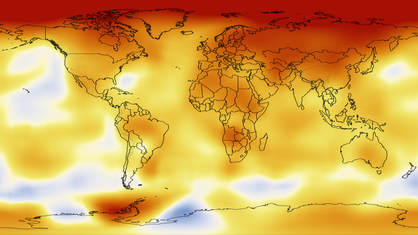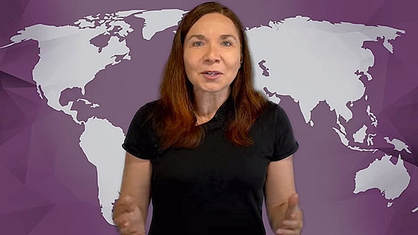|
3/31/2018 Moving Beyond Climate Change Skepticism and Climategate: What do we do About Global Warming Denial?Read Now In the old days scientists were considered to be individuals who were curious about the world around them. They wanted to find out how it worked, and what laws determined its behavior. They wanted to use this knowledge to make predictions, and develop technologies that could improve the situation of humankind. It was acknowledged that scientist were interested in discovering the truth. However, the social discourse in our society regarding some scientific fields that are perceived to be relevant for the culture wars has changed this view. One area where this has been very visible is global warming. There are scores of climate change skeptics who regularly pound news or social media outlets with commentary posts and videos against the notion that our planet is warming, and that humans are responsible for it. These people will not believe anyone who argues the opposite: not even one of their own! Such was the case of Dr. Richard Muller, a global warming skeptic, who decided to perform a study to check the evidence for himself. He assembled a star team of scientists (including one who won the Nobel Prize), obtained the funding, and performed the study. Dr. Muller and his team found that global warming is real, that it correlates with carbon dioxide levels in the atmosphere, and that human activity is very likely to be the cause. Needless to say that his results were not accepted by his fellow deniers! However, the discourse of global warming deniers goes beyond the mere rejection of the facts. What we are seeing is that scientists working in the climate field are often portrayed by many climate skeptics at best as compliant sheep who follow the consensus in the field, or at worst as despicable individuals that skew, modify, or falsify data to serve special interests, enrich themselves, gain access to funding, or promote liberal or socialist ideologies. These climate skeptics believe that if you are a scientist who agrees with the premise of global warming, then you must have some ulterior motive other than the truth, and this colors all they do. Consider the so called Climategate. In 2009 the e-mail correspondence of climate scientists at the University of East Anglia was obtained by hackers who went on to select and publish several e-mails that they claimed proved that climate scientists were manipulating data to create the impression that the world is warming. The released e-mails were pounced upon by some news (and not so news) outlets and paraded through the news cycle as proof of the conspiracy. The scandal led to investigations conducted by independent universities, committees, panels, agencies and foundations. They found the e-mails had been taken out of context and or misinterpreted by the hackers, and the scientists were cleared of wrongdoing. What had happened? Think of all the e-mails you’ve written in the past few years. Now think about someone who really doesn’t think highly of you and your beliefs. Now imagine that this person gains access to your past e-mails and pores over them trying to put together a narrative guided by their biases. I can guarantee you that, even if your e-mails contain nothing truly objectionable, this person will be able to piece together a narrative that will portray you in a less than flattering light. This is precisely what happened with the Climategate e-mails. The e-mails dealt with very technical and complex topics in an informal way, as you would expect from individuals highly knowledgeable in their field communicating and bouncing ideas off each other. The hackers did not have the scientific expertise or access to the context of the e-mails and they ended up creating a conspiracy where none existed. If the hackers and those who spread their message had paused and given scientists the benefit of the doubt, perhaps they would have avoided the debacle, but the mantra seems to be that a scientist who agrees with global warming by definition is up to no good. Despite being demonstrated to be wrong again and again, global warming skeptics and their supporters have been very successful at convincing a significant proportion of the American people that global warming is bogus. How is this possible? I believe that part of the answer lies in the fact that several possible solutions to climate change involve initiatives (e.g. reducing emission from fossil fuels), and entities (e.g. government) which many people view with suspicion. These suspicions have been purposefully stoked by powerful corporate interests that want to preserve the status quo and by organizations with social and political agendas. In essence these corporations and organizations have successfully sold snake oil to millions of individuals who, when they see scientists talk about climate change, they see the government imposing on them and taking away their jobs and their freedoms. So what are scientists to do? Perform more research? Generate more data? Attempt to educate people? Give more lectures? Continue confronting the skeptics and rebutting their arguments?  A climate scientist, Dr. Katherine Hayhoe, has an interesting suggestion. She claims that refusal to accept climate change nowadays by many people has more to do with identity and ideology than with data and facts, therefore arguing over data and facts with these people is not only futile but in fact may be counterproductive. Instead she suggests that scientists should select groups of individuals with whom they share a common value, engage with them at a personal level, explain how climate change will affect their shared value, and offer solutions they can implement. I don’t know if she is right, but her approach is a breath of fresh air in the otherwise virulent debate taking place in social media and over the airwaves. Dr. Hayhoe has produced a series of short videos entitled “Global Weirding” including the one in referenced in the link in the paragraph above where she discusses the reality of climate change and what we can do about it. The image of a 5-year average (2005-2009) global temperature change relative to the 1951-1980 mean temperature was produced by scientists at NASA's Goddard Institute for Space Studies and is in the public domain. The clip from Dr. Katharine Hayhoe’s Global Weirding video, “If I just explain the facts, they'll get it, right?”, is displayed here under the legal doctrine of Fair Use as described on Section 107 of the Copyright Act.
0 Comments
|
Details
Categories
All
Archives
June 2024
|
 RSS Feed
RSS Feed